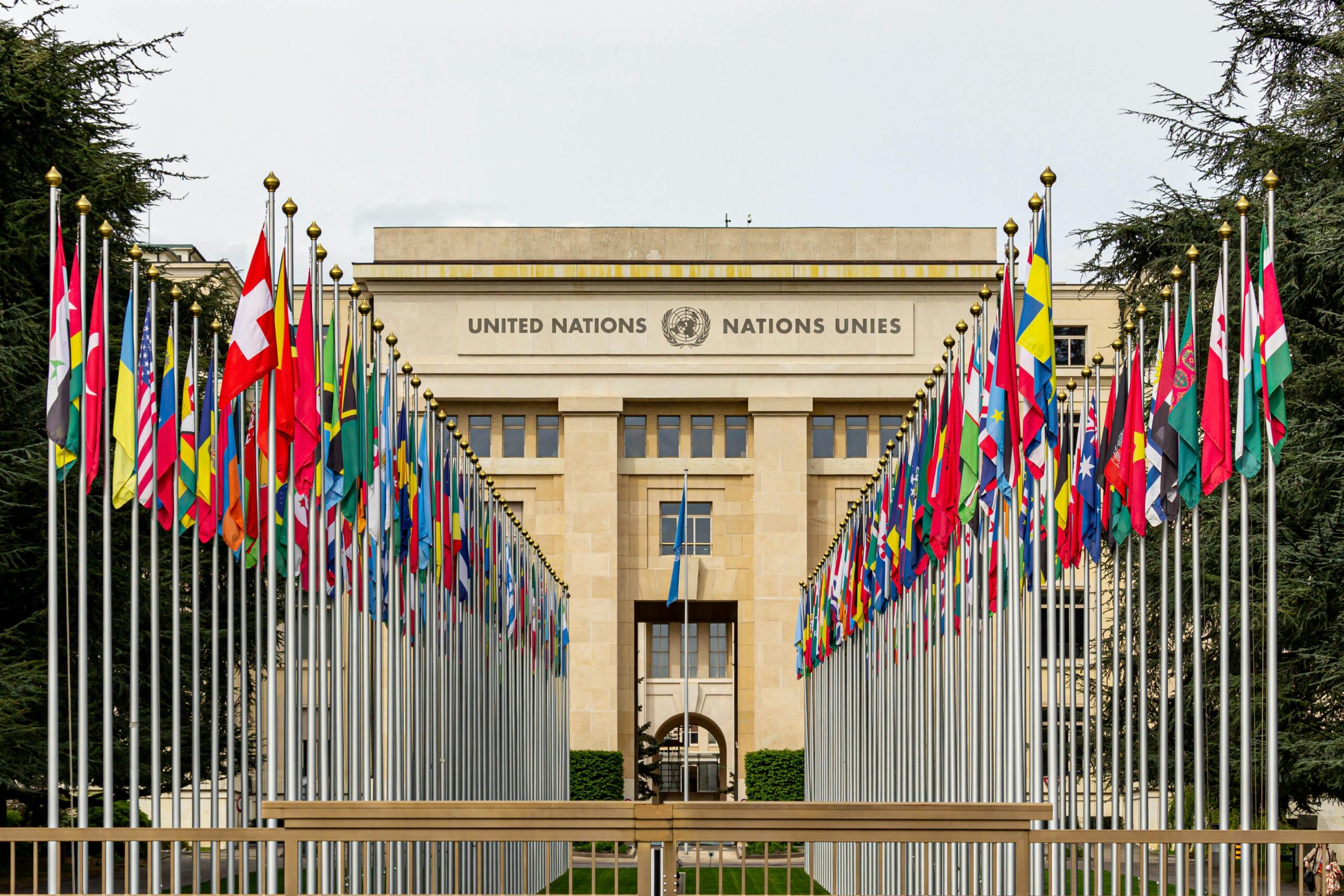
Tips for those affected by hostage situations
For this year’s Mental Health Awareness Week our mental health adviser trustee, Stephen Regel, answered some questions around the challenges for families with a loved one taken hostage and what they can do to strive for some form of stability through such uncertain times.
What are the main challenges for families who have a loved one taken hostage or held in arbitrary detention?
The most obvious challenge for families is uncertainty, despite whatever information they may have – which is usually pretty scant – a degree of uncertainty will always be there.
What happens is that this anxiety and worry heightens your levels of arousal so that your adrenaline rises and your in-built fight or flight are firing on all cylinders. It often becomes too much.
You may feel constantly on edge, which fuels irritability, and this degree of tension can manifest in different ways – maybe physically, perhaps with headaches, or if someone has a pre-existing medical problem, for example, irritable bowel syndrome, then it could flare up with the anxiety.
People may be hypervigilant, potentially constantly looking for news, and whilst that’s understandable, what I’d say is to try to monitor and moderate what you’re constantly looking for, because it’s usually detrimental rather than helpful and feeds back into a heightened level of anxiety.
Another common emotion that we see is a huge sense of guilt within families who are in a safe environment and can experience things they know their loved one can’t. If you find yourself laughing and having a fun moment, that’s completely normal and while people often worry about it, it’s important to remember that if you’re laughing at something or having fun, that’s good.
Every situation is individual, but, sadly, it’s rare to see people go through such extreme stress unaffected. It is almost a given.
In all cases, Hostage International is here to offer emotional and practical support.
How can loved-ones support their own mental health?
There is no easy answer, but there are tips that may help to help enhance any natural resilience that you have.
Try to remember that there are no ‘what if’s’ only ‘what is’, although we know that is not the easiest thing to hear.
It is essential to try to preserve your own level of resilience and mental health, to take time for yourself, your children, your family and your friends, as this will also help your loved one when they are released.
We know that a few small changes can help you support yourself.
Routine and ritual
If you don’t know what is going on with your loved one, in many ways it is an ambiguous loss. It could be six weeks, it could be six years… and it can help to think of it like a bereavement and in such situations we know that routine and ritual are important. This is particularly the case for families with children because they really need that routine.
Rituals that your family would engage in normally – such as Friday film night, or a takeaway evening – tend to help healing and recovery. It helps moves the focus from the person who isn’t there missing out and gives a bit of security for the family who are together. Such acts can help maintain what can pass for relative stability. We know it’s tenuous and a long way from ‘normality’, but it is helpful for families to spend time together and to put a protective barrier around it.
Writing and journaling
We know that when people write about their psychological distress it has positive mental health benefits, and that writing also improves your immunity. Some Studies have shown physiological healing rates were faster and better in those who write. It certainly seems worth a try.
You don’t have to be prescriptive; you could set yourself ten minutes and spend nine minutes looking out of the window and only write three words – that’s fine! Keep your expectations low and see what happens.
Bedtime
Sleep can be evasive when going through such extreme stress, so part of the routine could be around good bedtime and sleep ‘hygiene’. The Mental Health Foundation has some top tips here.
But for those experiencing the trauma of having a loved one taken hostage, it is particularly important to monitor what you might watch or read before going to bed. Avoid the news, go for light viewing, as some media can be very triggering – as highlighted in our previous blog by Professor Gordon Turnbull.
Movement as medicine
There are many ways to move and take exercise, anything from yoga to walking to running. Physical activity gives huge mental benefits.
We also know that taking exercise in nature can be extra beneficial, and activities such as gardening can offer a boost. But, if you’re lucky enough to have a garden, you might look out at the garden and see a daunting mess and give up before you start, so rather than attempting to tackle it all and feeling defeated, just take one job, such as going into the shed and sorting the tools out.
It’s the same with exercise – you can start by simply rolling out a yoga mat and lying on it, or going for a walk to the shop when you’d usually drive?
Try starting small, even if you don’t feel like it, and make incremental improvements and you’ll start to feel the benefits.
Create an activity schedule
When forming a routine, it can help to write a rough activity schedule, but don’t forget to put time in to do nothing – or at least phoning a friend or watching some amusing or calming TV.
Tasks can seem overwhelming when your loved one has been taken hostage, and you may feel bombarded by emails and that you are constantly trying to find out any information that may help them.
Try to dovetail nurturing activities for yourself around the more stressful activities that you will likely want to do for your loved one, so that you can start and end each day with some calm time for you.
Think about what your loved one would want you to be doing? You could also pop those things into your journal.
Unfortunately, there are no easy answers and one of the difficulties is that as human beings we are individuals, and it takes time to work through such acute times of distress.
Keep chipping away to make things easier for yourself and take time for you, and ask yourself:
Don’t forget to be kind to yourself; if you saw your best friend going through such a challenging time, what advice would you give?
Mental Health Week in Canada runs from 6-12 May and is around the theme #CompassionConnects from the Canadian Mental Health Association.
Mental Health Awareness Week is running in the UK from 13-19 May 2024, was set up by the Mental Health Foundation with this year’s theme on ‘Movement: Moving more for our mental health’.
Further information for families is available here. If you need support please email [email protected]
May 2024




